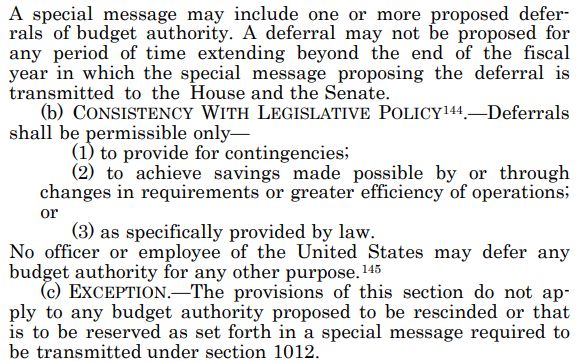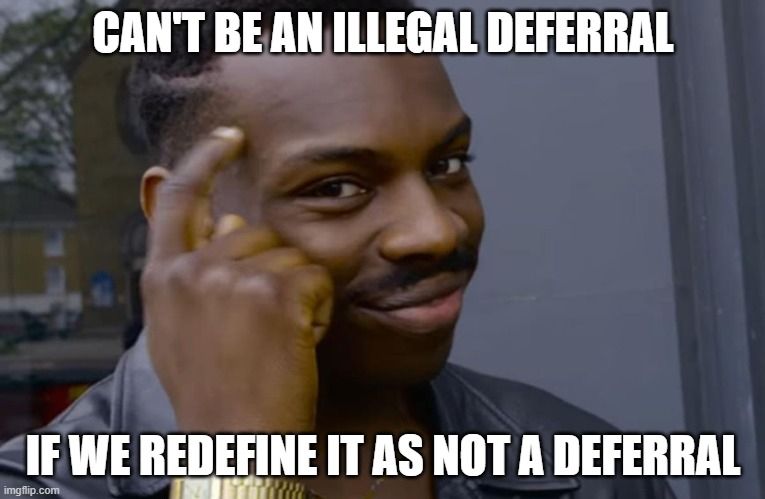Section 1013 of the ICA is crystal clear that, if you want to defer budget authority, you need to go through the procedure laid out in Section 1013. So what's OMB's approach? Just (incorrectly) assert that all sorts of deferrals aren't actually deferrals.
Replies
Same as with the definition of impoundment, they're doing the meme.
This'd be incredibly broad power to pause anything they want for as long as they want. Just say you want to change the scope or realign with admin policy, and now you can pause forever.
GAO and normal humans understand that things outside of an agency's control can cause delays on budget execution. GAO holds up Trump admin's NIH & Head Start deferrals as examples of stuff that obviously isn't allowed. You may not defer for policy reasons. The admin's just claiming unlimited power.
Russ Vought has been very clear from the beginning that he thinks the Trump admin can (illegally) impound anything they want. They have been impounding since day one. These changes to Circular A-11 are just motivated reasoning to get to the answer they want.
Here’s a link to the old Circular A-11: www.whitehouse.gov/wp-content/u... Here’s a link to the new Circular A-11: www.whitehouse.gov/wp-content/u...
I see this as an extension of the absolute power SCOTUS gave trump.
Who has any legal recourse here?
IMO it just proves how stupid they are. Changing information on a website doesn’t suddenly make it true. Vought is a slim ball.


![PROPOSED DEFERRALS OF BUDGET AUTHORITY SEC. 1013. [2 U.S.C. 684] (a) TRANSMITTAL OF SPECIAL MESSAGE.—Whenever the President, the Director of the Office of Management and Budget, the head of any department or agency of the United States, or any officer or employee of the United States proposes to defer any budget authority provided for a specific purpose or project, the President shall transmit to the House of Representatives and the Senate a special message specifying— (1) the amount of the budget authority proposed to be deferred; (2) any account, department, or establishment of the Government to which such budget authority is available for obligation, and the specific project or governmental functions involved; (3) the period of time during which the budget authority is proposed to be deferred; (4) the reasons for the proposed deferral, including any legal authority invoked to justify the proposed deferral; (5) to the maximum extent practicable, the estimated fiscal, economic, and budgetary effect of the proposed deferral; and (6) all facts, circumstances, and considerations relating to or bearing upon the proposed deferral and the decision to effect the proposed deferral, including an analysis of such facts, circumstances, and considerations in terms of their application to any legal authority, including specific elements of legal authority, invoked to justify such proposed deferral, and to the maximum extent practicable, the estimated effect of the proposed deferral upon the objects, purposes, and programs for which the budget authority is provided.](https://cdn.bsky.app/img/feed_thumbnail/plain/did:plc:drfb2pdjlnsqkfgsoellcahm/bafkreiccasi3vsp4k2c7ao5egwffel2c5mkbjv3eumiwuqnbopzcusphsq@jpeg)


